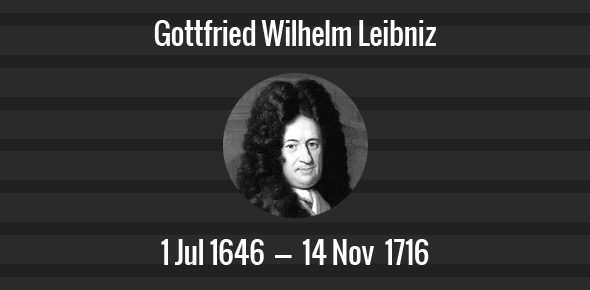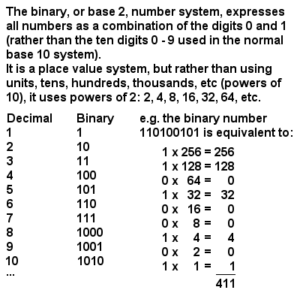
Leibniz 1646 : Digital
Jul 01 2018

Leibniz was born on July 1, 1646 in Leipzig and lived to be 70 years old. The German philosopher, inventor and mathematician laid the foundations for the modern day calculator and computer.
Leibniz was one of the most brilliant minds of his age and became one of the most prolific inventors in the field of mechanical calculators, building on Pacal’s calculator and he was the first to describe a pinwheel calculator in 1685.
He designed the Leibniz wheel, used in the arithmometer, the first mass-produced mechanical calculator.
Leibniz is credited as stating the first modern formula for pi.
During the 1670s, Leibniz worked on the invention of a practical calculating machine, which used the binary system and was capable of multiplying, dividing and even extracting roots, a great improvement on Pascal’s rudimentary adding machine and a true forerunner of the computer. He is usually credited with the early development of the binary number system (base 2 counting, using only the digits 0 and 1)
As Cinematographers of this age we understand that our light is converted into signal and signal is interrupted as BINARY NUMBERS 01 and stored at camera memory card , computer understands the language of binary numbers combination that defines color,shape,contrast .

Leibniz occupies a grand place in both the history of philosophy and the history of mathematics.
Principles ( Source wikipedia)
Leibniz variously invoked one or another of seven fundamental philosophical Principles:
- Identity/contradiction. If a proposition is true, then its negation is false and vice versa.
- Identity of indiscernibles. Two distinct things cannot have all their properties in common. If every predicate possessed by x is also possessed by y and vice versa, then entities x and y are identical; to suppose two things indiscernible is to suppose the same thing under two names. Frequently invoked in modern logic and philosophy, the “identity of indiscernibles” is often referred to as Leibniz’s Law. It has attracted the most controversy and criticism, especially from corpuscular philosophy and quantum mechanics.
- Sufficient reason. “There must be a sufficient reason for anything to exist, for any event to occur, for any truth to obtain.”
- Pre-established harmony. “[T]he appropriate nature of each substance brings it about that what happens to one corresponds to what happens to all the others, without, however, their acting upon one another directly.” (Discourse on Metaphysics, XIV) A dropped glass shatters because it “knows” it has hit the ground, and not because the impact with the ground “compels” the glass to split.
- Law of Continuity. Natura non facit saltus(literally, “Nature does not make jumps”).
- Optimism. “God assuredly always chooses the best.
- Plenitude. Leibniz believed that the best of all possible worlds would actualize every genuine possibility, and argued in Théodicée that this best of all possible worlds will contain all possibilities, with our finite experience of eternity giving no reason to dispute nature’s perfection.
Leibniz died in Hanover in 1716.

CJ Rajkumar
Author/Cinematographer
